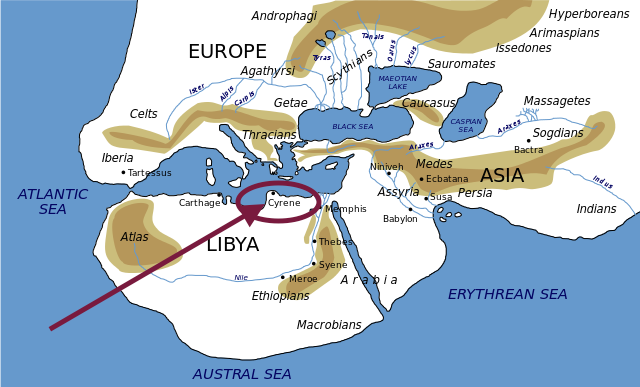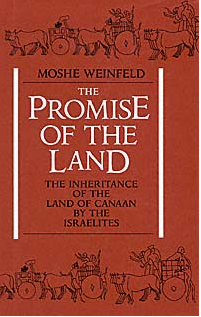The “historical” founder of the colony of Cyrene was a Greek named Battus (an unlikely founder since he spoke with a stutter) who is said to have ruled in the years leading up to 600 BCE.
Contemporary archaeologists agree: Cyrene, the Greek colony in Libya, had its beginnings in the second half of the seventh century B.C. The presence of some objects dated to the Late Helladic III A and B periods on the site clearly points to more ancient contacts between Greece and the Mediterranean coast of Africa; nothing, however, before the middle of the Archaic period indicates the development of a city in the Greek sense of the term. Such is the interpretation of the archaeologists . . . (Calame, Claude. Myth and History in Ancient Greece: The Symbolic Creation of a Colony, Princeton, N.J., Princeton University Press, 2003. p. 35)

The ancient myth of the founding of the Cyrenian kingdom comes to us from a number of sources, including several of Pindar‘s poems (in particular the Pythian Odes 4, 5, 9), the history by Herodotus, (book 4), the epic poet Apollonius of Rhodes who wrote about Jason and the Argonauts, and the Cyrenian poet Callimachus.
Herodotus, writing as a “historian” presents us with a rationalised version of how Cyrene was founded as a Greek colony. He eschews in this context tales of gods and demigods and myths. But the other sources mentioned above are more willing to leave us the popular legends of how this great ancient Greek colony of Libya came to be.
Pindar gives us two stories: one begins seventeen generations before our stuttering founder Battus; but another begins even earlier, back in mythic time when only gods “made history”.

